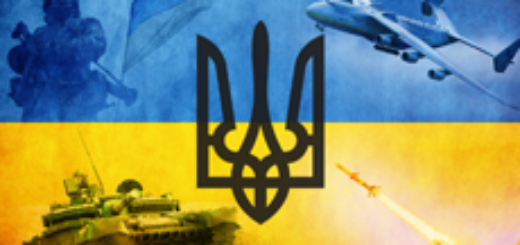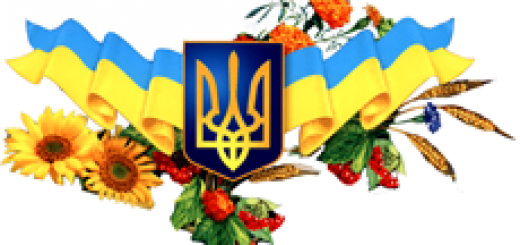 In Ukraine, they are creating their own open scientific citation index - the Ministry of Education and Science of Ukraine is starting work on this together with the State Scientific and Technical Library. The project will allow tracking the publication activity and citations of Ukrainian scientists, publications and institutions, as many of them for various reasons remain outside the boundaries of databases such as Scopus and Web of Science.
In Ukraine, they are creating their own open scientific citation index - the Ministry of Education and Science of Ukraine is starting work on this together with the State Scientific and Technical Library. The project will allow tracking the publication activity and citations of Ukrainian scientists, publications and institutions, as many of them for various reasons remain outside the boundaries of databases such as Scopus and Web of Science.
"When it comes to the use of metrics to evaluate the publication activity and citation rate of Ukrainian scientists, our scientific community is currently divided into 2 camps. Some - primarily representatives of natural and technical sciences - insist on using international databases Scopus and WoS, which provide their own metrics for evaluating publication activity. The other part - mostly representatives of social and humanitarian sciences - are against such an approach. They motivate this by the insufficient representation of publications in this field in publications indexed in Scopus and WoS," explained Dmytro Cheberkus, Director General of the Directorate of Science of the Ministry of Education and Science of Ukraine.
He noted that the MES analyzed this situation on the example of European countries that are not English-speaking, but where English is widely used in science - Poland, the Czech Republic, Denmark, Norway, Slovakia, etc. So, in these countries, according to 2014 data, the index of the presence of publications from the field of social and humanitarian sciences in the WoS database ranged from 15 (Poland) to 50% (Denmark).
“This shows that the majority of such publications remain outside the WoS. And therefore, it is invisible to the wider scientific community when it comes to the calculation of citation indices and other indicators of evaluation of a scientist's scientific output. In Ukraine, it is often suggested to use the Google Academy resource as an evaluation criterion. But it is unlikely that we will get a correct result in it, because it takes into account citations in unverified resources and even in the mass media. Is there any other alternative? Currently, the use of open citation databases, and in particular the Initiative for Open Citations, which has been joined by a number of the world's leading publishing houses, is becoming more and more common in the world," noted Dmytro Cheberkus.
Within this project, its participants can freely exchange reference information, thus forming an open scientific citation database. It contains data on all links between articles in those editions that are included in the project.
It is on the basis of this platform that the MES and DNTB plan to create an open Ukrainian scientific citation index. In particular, library specialists will develop the necessary software and interface for accessing the database through the DNTB website. As a result, it will allow you to search the database, set the number of documents, citations for authors, institutions, publications, and calculate scientometric indicators.
"Will this mean that the MES will force universities or scientific institutions to include their publications in the database of the open scientific citation index, spend additional funds for this, or lose intellectual property? Definitely not. The key word in the name of this database is the word "open", which means the principle of voluntary participation," the head of the directorate emphasized.
At the same time, he added that by now all normative and legal acts, which are necessary to encourage our publications to join the project, have already been adopted. First of all, this is a new edition of the Procedure for Forming the List of Scientific and Professional Publications of Ukraine, approved by the Order of the Ministry of Education and Culture No. 32 dated January 15, 2018.
According to the Order, all scientific and professional publications in Ukraine are divided into 3 categories. The highest "A" are those included in Scopus and WoS. But for the average category "B", which is expected to include the most publications within two years, one of the conditions is the mandatory assignment of an international digital identifier DOI to each published material.
"This step is very important, because the presence of such an identifier makes the scientific publication visible to professional bibliometric systems. This makes it easier for colleagues around the world to find it and to track its citations. In Ukraine, DOI assignment services are mostly provided by the Crossref agency, which additionally offers all clients to join the Initiative for Open Citations project for free. Therefore, by fulfilling the new requirements for inclusion in the List of scientific professional publications, Ukrainian publishers will automatically fulfill the minimum technical requirements for inclusion in the open Ukrainian scientific citation index. Further, after the publishing house gives formal consent, the corresponding software will work," explained Dmytro Cheberkus.
In parallel with the creation of technical capabilities, a working group will be formed in the Ministry, which will include all interested parties, according to the decision of the MES Board. It will develop recommendations for further use of the MES's open index capabilities. It is planned that the project will be launched by the end of the year and it will open the following prospects:
- Provide scientists with up-to-date bibliographic information;
– It will provide an additional opportunity to evaluate the productivity of domestic scientists, institutions and universities;
- It will determine the level of influence of Ukrainian scientific publications, in particular socio-humanitarian ones.






